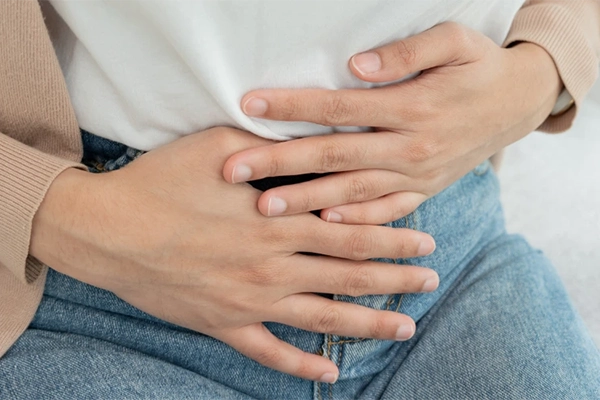Topics
Despite being a crucial part of a balanced diet, fibre is frequently disregarded. It is essential for keeping digestion smooth and avoiding constipation, which is a condition in which bowel movements become difficult or infrequent.
Plant-based foods such as fruits, vegetables, grains, and legumes are the main source of dietary fibre. It acts like a broom that is able to sweep waste and toxins out of the intestines. Soluble and insoluble fibre are the two primary forms, and both are important for healthy bowel movements.
This article will go over the reasons behind constipation, how fibre can help avoid it, and how to get the help you need to keep your gut healthy.
Causes of Constipation
Poor Dietary Choices | A low-fibre diet is one of the main causes of constipation. White bread, sugary snacks, and fast food are examples of processed foods that are depleted of fibre and other vital nutrients. |
Sedentary Lifestyle | Another common cause of constipation is a lack of physical activity. Digestion slows down when the body is inactive for extended periods of time. Exercise promotes stool movement by inducing intestinal contractions. |
Stress and Medication | Digestion is surprisingly affected by stress. Your body releases stress hormones when you are under pressure, which can interfere with regular bowel movements. Constipation is also frequently listed as a side effect of drugs like iron supplements, antidepressants, and painkillers. |
How Fibre Helps Prevent Constipation
Insoluble Fibre | Insoluble fibre gives stools greater bulk and accelerates their passage through the intestines by acting as a brush. It works well for those who have irregular bowel movements or slow digestion because it does not dissolve in water. |
Soluble Fibre | Soluble fibre softens stools and facilitates passage by dissolving in water to form a gel-like substance. People who occasionally experience constipation or have hard stools will benefit most from this kind of fiber. Oats, apples, citrus fruits, and legumes are all excellent providers of soluble fiber. |
Best Fibre-Rich Foods | It is easy to include foods high in fibre in your daily diet. Start with easily snackable, high-fibre fruits like apples, pears, and berries. Broccoli, carrots, and leafy greens are examples of vegetables that not only help with digestion but also supply vital vitamins. You can also boost your intake of fiber by eating whole grains like quinoa, brown rice, and oats. |
FAQs: Frequently Asked Questions
1.How long does it take for fibre to help with constipation?
As your intake of fibre increases and your digestion adjusts, you might see improvements in a few days to a week, though results vary.
2. Are fibre supplements a good replacement for natural fibre sources?
Although they can be beneficial, fibre supplements should not be a total replacement of a balanced diet. Supplements do not provide all the vitamins and minerals that whole foods do.
3. How long does it take for increasing fibre intake to start producing results?
After increasing their intake of fibre, most people experience improvements in their bowel movements within a few days to a week. However, maintaining results requires consistency.
4. If I consume too much fibre, what will happen?
Overconsumption of fibre can result in gas, bloating, and discomfort in the abdomen. To prevent these side effects, it is crucial to gradually increase fibre intake and to drink lots of water.
5. How does fibre affect the health of gut bacteria?
As a prebiotic, fibre feeds beneficial gut bacteria, promoting better digestion and a healthy gut microbiome.
Schedule an Appointment at Gleneagles Hospitals
Early detection of constipation symptoms has the potential to change lives. Though it can worsen and cause more issues, those with constipation can recover and the condition can be relieved with the correct medical attention.
Feel free to contact us to schedule an appointment if you have any questions or concerns about how fibre helps avoid constipation. Our specialists at Gleneagles Hospitals are available for you to consult. If a health screen is needed, please get in touch with your closest Gleneagles Hospital's health screening centre to book an appointment.








